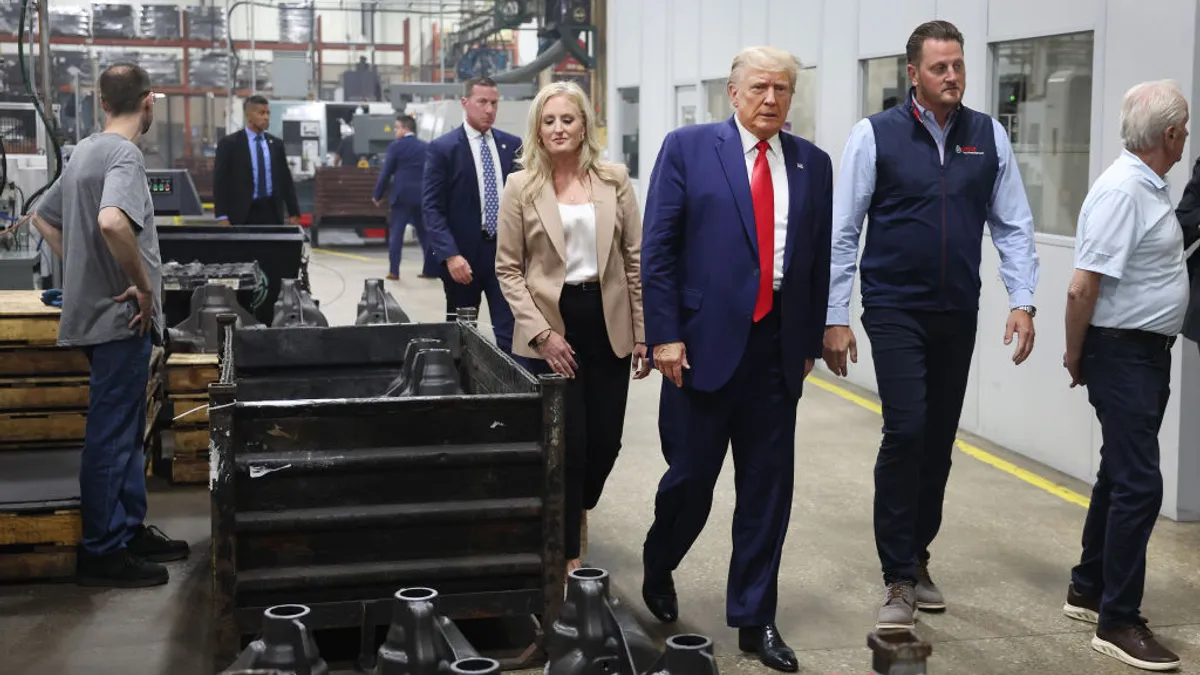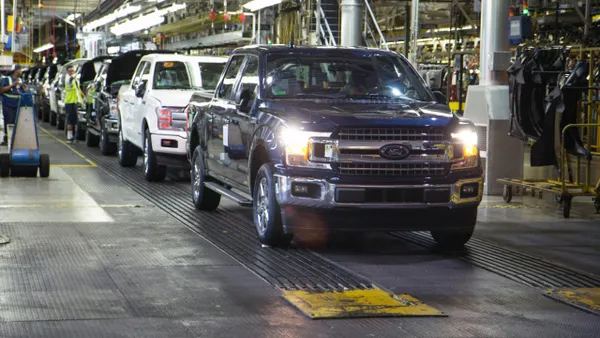Dive Brief:
- Ford Motor Co. and Unifor, a union representing over 5,600 Ford autoworkers in Canada, have reached a tentative, three-year collective bargaining agreement to avoid a labor strike, the organizations said Tuesday.
- The automaker and union have not released the agreement’s details.
- Unifor will unveil the agreement’s details to Ford autoworkers in Canada during ratification meetings “in the near future,” the union said in a statement.
Dive Insight:
Unifor, a union representing 18,000 autoworkers in Canada, has targeted Ford as it negotiates a new collective bargaining agreement with the Big Three automakers. After the union signs a contract with Ford, it will use that agreement as a blueprint for renegotiating labor contracts with General Motors and Stellantis. Negotiations with GM and Stellantis will remain on hold until Unifor’s members ratify an agreement with Ford.
The agreement, if ratified, would cover unionized autoworkers at Ford’s Oakville Assembly Plant, and Annex and Essex Engine Plants in Windsor, Ontario. It would also cover three parts distribution centers in Ontario and one in Alberta.
“We believe that this tentative agreement, endorsed by the entire master bargaining committee, addresses all of the items raised by members in preparation for this round of collective bargaining,” Unifor National President Lana Payne said in a statement Tuesday. “We believe that this agreement will solidify the foundations on which we will continue to bargain gains for generations of autoworkers in Canada.”
Unifor’s top collective bargaining priorities included pension and wage package improvements, electric vehicle transition supports and “investments,” Payne said Sept. 14 during an information session about the union’s collective bargaining efforts with the Big Three automakers.
“In addition to reaching a master agreement, our members at each Ford location face their own unique set of issues that needed to be resolved by our committees at the bargaining table,” the chair of Unifor's Ford master bargaining committee, John D'Agnolo, said in a statement Tuesday. “This agreement makes the kind of gains our members need today and adds greater financial security for the future.”
Experts said a Unifor strike in Canada would disrupt the U.S. auto industry because the countries’ automotive supply chains are closely intertwined.
Unifor is following the same pattern bargaining strategy the UAW has used historically in its negotiations with the Big Three. In contrast, the UAW is negotiating with all three automakers simultaneously. On Friday, the UAW went on strike after failing to reach labor agreements with GM, Ford and Stellantis by its Sept. 14 deadline.
Unifor sent a letter to the UAW Friday expressing support for striking autoworkers in the U.S.
“Autoworkers in Canada and North America have a history of setting industry standards that extend past the Detroit Three. What we win at the bargaining table raises the bar for all working people,” the letter says.












